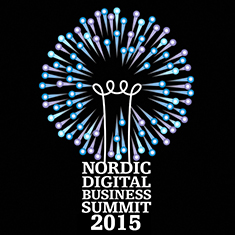With the shift of focus to cloud computing, sophisticated data centres providing energy efficient design as well as high reliability are indispensable.
While old designs are being upgraded to keep up with new demands, industry experts suggest that fresh and innovative designs would offer far more to the industry than the typical upgrades of outmoded centres.
New technologies today focus on reducing hardware and system costs, advancing the efficiency of resources, and offer far greater flexibility. Businesses need to adapt to changes faster than ever and thus top quality data centres have become indispensable.
This year’s Nordic Digital Business Summit happens in Helsinki on the 24th of September, and focuses on Data Centres, Cloud and Internet of Things/Industrial Internet sectors, ideally situated considering the expansion of such technologies in Europe.
Finland is considered an excellent home for data centres with its environmental advantages in energy and climate. Cold enough to keep down cooling costs, and with plenty of water available for renewable energy, Finland offers many potential sites for new data centres. In an effort to increase such investment, Finland has also lowered its electricity tax for data centres. Already home to Google, Yandex and Microsoft data centres, ZDNet suggests Finland may be the world’s next data centre powerhouse.
According to the Global Cleantech Innovation Index (2014), Israel, Finland, USA, Sweden and Denmark represent the top 5 most promising eco-friendly industries of the future and entrepreneurial startups to commercialize clean tech innovations over the next 10 years.
”Finland is considered an excellent home for data centres with its environmental advantages in energy and climate.”
With Finland’s connection through Sweden presenting a privacy problem, the need for a fast speed data connection directly into Europe is essential. Cinia Group has recently announced that it is building a digital highway between Finland and Germany with Hetzner Online, using Cinia’s new Sea Lion submarine cable system. The 20-year contract allows capacity extension up to 15 Tbit/s and is currently worth over €10 million.
The first Nordic Digital Business Summit took place in Helsinki 4th September 2014
Apple is also set to invest in new data centres in Europe, and announced in February a €1.7 billion plan to build and operate 100% renewable energy data centres in Denmark and Ireland, with operation expected to begin in 2017. Facebook has opened its newest data centre in Sweden, and suggests that it may be its most efficient and sustainable to date. Using server and storage hardware from the Open Compute Project, this data centre will be powered on hydroelectricity.
”Israel, Finland, USA, Sweden and Denmark represent the top 5 most promising eco-friendly industries of the future and entrepreneurial startups to commercialize clean tech innovations.”
Currently, the EU carbon tax regime for data centres causes much complaint in the industry, but the rate at which they are being built hasn’t slowed due to demands of Cloud. With Google and Apple both announcing renewable energy deals. Yandex is investigating environmental data as it attempts to offer sustainable and energy efficient solutions and reduce its carbon footprint, and opportunities such as wind and solar are being considered as well as the recycling of waste heat.
Finland has the biggest take up of cloud computing services in Europe, with more than half of Finnish enterprises on the cloud. As knowledge and security increases, data centres are emerging and expanding worldwide, and Finland is well positioned to provide excellence with infrastructure that nurtures and promotes ICT from the ground up (Computer Weekly).
Article originally written by Jennifer Klostermann for Nordic Digital Business Summit














































Jätä kommentti - kommentteja(0)